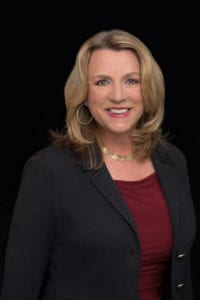Who is a member?
Our members are the local governments of Massachusetts and their elected and appointed leadership.

Former Air Force Secretary Deborah Lee James
Deborah Lee James, who became the second woman to lead a U.S. military service as the 23rd secretary of the Air Force, will share her insights about leadership and resiliency as the keynote speaker at the MMA Annual Meeting & Trade Show on Jan. 24 in Boston.
James, 60, served as Air Force secretary from 2013 to 2017, capping a 35-year defense-related career in the public and private sectors. Since then, she has joined several corporate boards, written a book and given motivational speeches about navigating life’s detours and finding the opportunities within the obstacles.
James will share her experiences and strategies for not just surviving, but thriving in difficult public environments, where leaders face constant change, criticism and conflict.
“State and local government employees are the voice of advocacy, innovation and efficiency to meet the needs of all Americans across the U.S.,” James told the MMA. “But what happens when the voice becomes hoarse, when constant change and turmoil sap your energy, when public criticism becomes intense or a work challenge seems impossible to overcome?”
Growing up in New Jersey as the shy daughter of an “emotionally abusive” mother and a target of bullies, James dreamed of becoming a diplomat. She earned a bachelor’s degree in comparative area studies from Duke University, and a master’s degree in international affairs from Columbia University, but the U.S. State Department rejected James, devastating her and forcing a Plan B.
The U.S. Department of Defense hired her in 1981, and with that, the death of one dream led to another, James writes in her book “Aim High: Chart Your Course and Find Success.”
James also served for a decade as a professional staff member for the Armed Services Committee in the U.S. House of Representatives. In 1993, she became the assistant secretary of defense for Reserve Affairs under President Bill Clinton, advising on matters involving National Guard and Reserve members.
After leaving the Pentagon in 1998, James spent two years as a vice president at United Technologies before joining SAIC, where she rose to become president of the technical and engineering sector, overseeing 8,700 employees.
When the Obama administration asked her to interview for the Air Force secretary position, she dismissed her chances when her interviews were relegated to lower-level staff. Her eventual interview with then-Defense Secretary Chuck Hagel was pushed into a Friday night because of problems with North Korea leader Kim Jong-Un. James stuck it out, and got the offer within days. According to James, Hagel said later that he was impressed by her commitment to teamwork and to getting things done.
James then faced a quandary familiar to many who have considered public service. She loved her lucrative job, where she had managed to succeed in a male-dominated industry. Besides taking a pay cut, returning to the Pentagon would mean accepting responsibility for life-and-death decisions, being pulled into political battles, and risking public failure and entanglement in controversies.
“I had watched good people work hard and successfully their whole lives, then assume government posts, devote enormous time and energy, only to have something really bad happen on their watch that sent their reputation of a lifetime out the window,” James writes in “Aim High.”
James accepted the job, fully recognizing the need to establish credibility as a woman leader and as someone who had never served in uniform. She was placed in charge of 660,000 employees and a $140 billion budget.
Three weeks into her tenure, a drug investigation revealed evidence of cheating on proficiency exams by nuclear-missile personnel at a Montana Air Force base. In the aftermath, James visited Air Force bases and led efforts to boost morale, elicit feedback and improve operations and working conditions for people overseeing intercontinental ballistic missiles.
James, who lives in Virginia, now serves on advisory boards for organizations such as LeanIn.Org and MIT’s Lincoln Laboratory. She also coaches senior executives, stressing the need for effective communication and active listening.